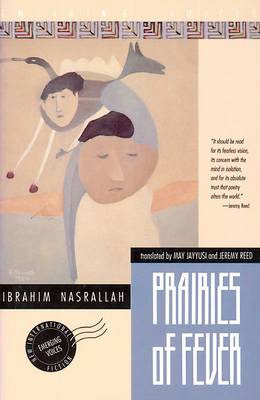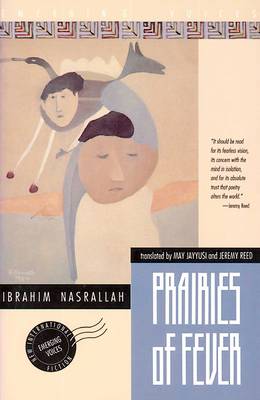
- Afhalen na 1 uur in een winkel met voorraad
- Gratis thuislevering in België vanaf € 30
- Ruim aanbod met 7 miljoen producten
- Afhalen na 1 uur in een winkel met voorraad
- Gratis thuislevering in België vanaf € 30
- Ruim aanbod met 7 miljoen producten
Zoeken
€ 13,95
+ 27 punten
Omschrijving
Prairies of Fever is one of the foremost modernist novels of our time. A negation of chronology and sequence, a cohesve relationship between form and content, and a temporal parallelism of events, memories and dreams, give the novel a unique tenor. The central character, Muhammad Hammad, is a young teacher hired, like hundreds of others from all over the Arab world, to teach in a remote part of the Arabian peninsula. The novel recounts his harrowing struggle to retain any sense of identity at all in the bleak and alienating place he finds himself in, caught between the infinite expanse of desert and the intolerable narrowness of village life. His psychic and physical anguish, beset as he is by hallucinations, fantasies and the indifference of the villagers, is mirrored in the writing of the novel: time appears unfixed as the story jumps from past to future and back to the present; there is an eerie fusion of the animal and human worlds; and reality and fantasy become hard to distinguish. The result is an exceptional poetic novel, disturbing, evocative and deeply moving.
Specificaties
Betrokkenen
- Auteur(s):
- Uitgeverij:
Inhoud
- Aantal bladzijden:
- 160
- Taal:
- Engels
- Reeks:
Eigenschappen
- Productcode (EAN):
- 9781566561068
- Verschijningsdatum:
- 7/04/1998
- Uitvoering:
- Paperback
- Formaat:
- Trade paperback (VS)
- Afmetingen:
- 132 mm x 202 mm
- Gewicht:
- 190 g

Alleen bij Standaard Boekhandel
+ 27 punten op je klantenkaart van Standaard Boekhandel
Beoordelingen
We publiceren alleen reviews die voldoen aan de voorwaarden voor reviews. Bekijk onze voorwaarden voor reviews.







